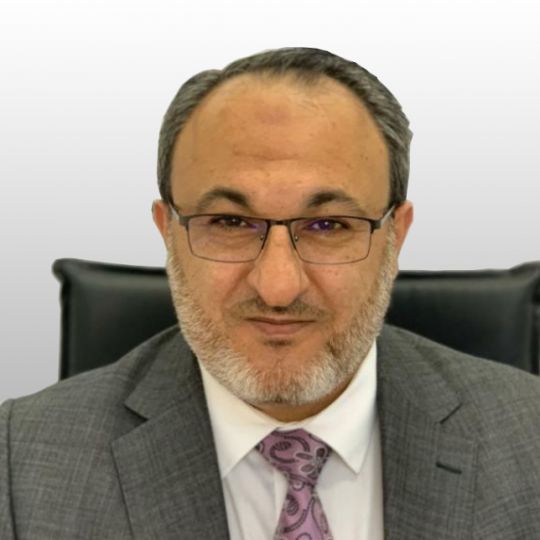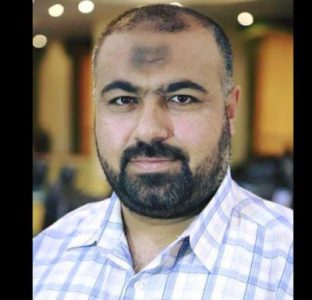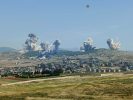The phone call between Russian Foreign Minister Sergei Lavrov and Hamas leader Ismail Haniyeh comes amid clashes in Jerusalem. It also occurred in the context of multiple international contacts with the movement seeking to contain escalation in the occupied Palestinian territories especially at Al-Aqsa Mosque following Israeli attempts to storm it on Passover festival (Pesach) a major Jewish holiday.
Russian contacts with Hamas have continued over many years and at different levels as leaders of the movement have previously visited Moscow several times and met with Russian officials. However this time Lavrov’s call can be placed in a different context – a context of Russian-Israeli relations deterioration.
It seems that the tension between Moscow and Tel Aviv has reflected positively on the Russian relations with the Palestinian side as a few days ago Russian President Vladimir Putin called Palestinian Authority (PA) President Mahmoud Abbas and showed support for the Palestinians. Regardless of the content of the call the timing is most significant.
It must be admitted that the Russians have been dealing with the Palestinian issue more rationally and realistically than their European and US counterparts. For several decades the US and Europe pursued a futile policy in dealing with this complex issue based on isolating the influential Palestinian forces on the ground. They tried to subdue and domesticate them forcing them to abandon the demands and dreams of their people as they did with the Palestine Liberation Organization (PLO) and then the PA. They made these forces identify with the Israeli occupation transforming them into an additional tool of repression against the Palestinian people in the hands of the Israeli occupation ending up with practically no Palestinian side with whom to negotiate.
The US and Europe are still playing the same security game with Hamas and the rest of the Palestinian resistance organizations including the political wing by placing them on the lists of terrorists criminalizing communication with them and cutting off political and diplomatic channels of communication. At the same time “Western” governments submitted to a reality imposed by Hamas with blood and fire and found no escape from reaching out through back door channels thinking that by not having direct contact with Hamas they would be depriving it of legitimacy. However they forget that this movement gained legitimacy through the Palestinian people not through foreign recognition.
Hamas does not only fire rockets. It has been effectively managing the two million people in the Gaza Strip despite the 16-year Israeli siege and four wars. This includes functioning government offices schools universities healthcare services media places of worship police coast guards courts banks and recreational facilities. It has good command over the land and people and is successful in applying law and order within its territories. It has demonstrated a high level of professionalism in dealing with the COVID-19 pandemic and the economy. Politically it maintains warm relations with most Palestinian factions and has relatively good relations with most Arab countries especially Egypt Jordan and Lebanon.
Therefore whenever matters are about to slip out of their hands and the entire region is on the verge of instability Europe and the US take the initiative to communicate with Hamas through mediators to remedy matters. Unfortunately they do not find the courage to say “enough is enough” about this futile security policy that has produced nothing but tragedy for all. The time has come for a new more effective and realistic policy based on recognizing the other even if it is an enemy and desisting from ignoring the facts on the ground.
The recent report by the International Crisis Group represents a serious attempt in this direction in terms of its call for Western countries to abandon the Quartet’s conditions which include the demand for Hamas to recognize Israel renounce violence and accept all agreements concluded by the PLO and the PA with Israel. This would allow the movement at least to participate in a Palestinian national unity government and go for a realistic policy that adopts greater involvement of international powers in the conflict. It would also allow for a more reasonable position in dealing with the Palestinian issue and confronting the illegal Israeli government measures that seek to buy time to change the status quo and make the two-state solution impossible. They should put pressure to reach a long-term armistice in the Gaza Strip return to the legal status of Al-Aqsa Mosque stop eviction orders and house demolitions in Jerusalem and the West Bank and halt settlement expansion.
Unless the major players stop the game of denial and accept in practice not only in words that there are in fact a Palestinian people who deserve to decide their own future and have their own independent state on the soil of their ancestors the conflict will continue increasing in frequency and magnitude until it destabilizes and burns places far away from Palestine.
Finding solutions that will in the end get out of the cycle of violence instead of waiting for the region to explode at every turn.
– Dr Mohammad Makram Balawi is a Palestinian writer and academic based in Istanbul. He is the president of Asia Middle East Forum. His article appeared in MEMO.













